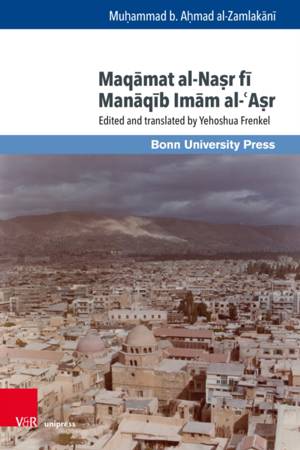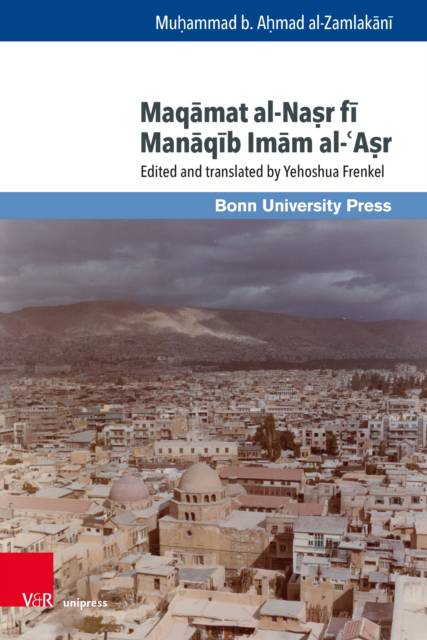
Bedankt voor het vertrouwen het afgelopen jaar! Om jou te bedanken bieden we GRATIS verzending (in België) aan op alles gedurende de hele maand januari.
- Afhalen na 1 uur in een winkel met voorraad
- In januari gratis thuislevering in België
- Ruim aanbod met 7 miljoen producten
Bedankt voor het vertrouwen het afgelopen jaar! Om jou te bedanken bieden we GRATIS verzending (in België) aan op alles gedurende de hele maand januari.
- Afhalen na 1 uur in een winkel met voorraad
- In januari gratis thuislevering in België
- Ruim aanbod met 7 miljoen producten
Zoeken
Omschrijving
A unique Mamluk manuscript tells the story of a Damascene jurist. Ibn al-Zamlakani's story revolves around a dramatic episode in the life of his master, the great judge Taj al-Din al-Subki, who is the central figure (hero) of the tale. The composer justly names his document maqamah. In rhyming prose, it narrates several episodes. Transmitted by a narrator (or at least his voice), who distance himself from the event, it is a story about an escape from hardship of a hero who is supported by good characters and face some evil enemies. Yet, it is not a biography, but a dramatic plot that transmits a moral lesson. The maqamah illuminates the relations between the Mamluk ruling military aristocracy and the religious establishment, as well as the competition that divided the Damascene urban elite.
Specificaties
Betrokkenen
- Auteur(s):
- Uitgeverij:
Inhoud
- Aantal bladzijden:
- 205
- Taal:
- Arabisch, Engels
- Reeks:
- Reeksnummer:
- nr. 28
Eigenschappen
- Productcode (EAN):
- 9783847114574
- Verschijningsdatum:
- 14/11/2022
- Uitvoering:
- Hardcover
- Formaat:
- Genaaid
- Afmetingen:
- 155 mm x 231 mm
- Gewicht:
- 453 g

Alleen bij Standaard Boekhandel
+ 88 punten op je klantenkaart van Standaard Boekhandel
Beoordelingen
We publiceren alleen reviews die voldoen aan de voorwaarden voor reviews. Bekijk onze voorwaarden voor reviews.









